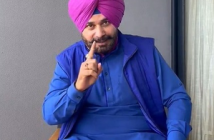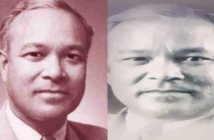World-Class sports infrastructure built in Gujarat in 2 decades; Budget for sports increases to Rs 250 cr Prime Minister Narendra Modi inaugurated the 36th National Games on September 29 from the Narendra Modi Stadium in Ahmedabad. It is noteworthy to mention that it generally takes 12-36 months to make necessary arrangements for such a grand event.
However, the Government of Gujarat, led by Chief Minister Bhupendra Patel ensured the same within three months.
In the last few years, the Government of Gujarat has prioritised building a world-class sports infrastructure in the state. There were just three sports centres before 2002. Now, the state has one multipurpose indoor hall each in 19 districts with separate government complexes for outdoor sports.
Investment in infrastructure provided Gujarat with the flexibility to ensure that the National Games can be organised smoothly across six cities. The sports complex in Naranpura, Ahmedabad which is equipped with ultra-sports modern facilities is at par with the Olympic stature. The state government aims to have one such modern sports complex in every district.
To help the players and coaches understand the science of the human body better and promote physical activities for improved performance, the state government has established Sports University in 2011. It has over 14 affiliated institutes. In the last two-and-a-half years, over 3,500 students have enrolled here.
In 2022-23, the state budget for sports has increased to Rs 250 crore (2002: Rs 2.5 crore). Moreover, the state government’s Shaktidoot Yojana and District-Level Sports School Yojana are aiding in promoting the sports culture in Gujarat.
Players are given financial assistance as well as coaching facilities under this scheme. About 64 people have benefited through this scheme and reached the national level in various sports.
Launched in 2010 by then Chief Minister Narendra Modi, Khel Mahakumbh aimed to promote sports at the grass root level and bring a change in the mindset of people about sports. In the last 12 years, this annual event has produced world-class players like Harmeet Desai (table tennis), Ankita Raina (tennis), Mana Patel (swimming), and Sarita Gaikwad (athletics), who have won accolades at the National and International level. Recently, Bhavina Patel, from Gujarat, made India proud by winning a silver medal in table tennis at the Tokyo Paralympics.
The state government’s success in facilitating sports can be gauged from the fact that Khel Mahakumbh has emerged as Asia’s biggest grassroots talent identification and development programme.
The 11th edition of Khel Mahakumbh had a record participation of 41 lakh sportspersons, almost three times then in 2010 (13 lakh).
Gujarat Sports Policy 2022 launched by Bhupendra Patel aims to give sports a new impetus. It lays special importance on creating a vibrant sports culture and encourages youngsters to excel in national/international events by providing them with high-performance centres, sports excellence centres, district sports complexes, sports colleges, and schools.
The new policy will also enable establishing of India’s first para-athlete-centric high-performance centre, upgrading infrastructure at sports venues to increase accessibility, and conducting talent identification programmes, especially for para and special athletes.
The 36th National Games has registered the highest participation in any national sports event with 20,000 sports persons, coaches, officials, and support staff.
The event includes Yogasanas, Mallakhambh, Kabaddi, Swimming, Badminton, Volleyball, Basketball, Hockey, Golf, Kayaking, Triathlons, and other traditional and modern sports.
Gujarat, Haryana, Maharashtra, Karnataka and Punjab have the biggest contingents with 400-650 players. More than 7,000 athletes will participate in over 381 competitions in 36 disciplines for over 1,100 medals.



